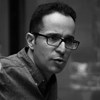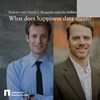jerusalem

Shlomi Segall
I am a political philosopher teaching at the Department of Political Science and the Program in Politics, Philosophy & Economics, at the Hebrew University of Jerusalem. My research interests are i
Middle-Class Precarity and the Re-Legitimation of the Welfare State
Professor Michael Shalev, Department of Sociology, Hebrew University, Jerusalem Seminars host is Stefan Svallfors. The seminars are free of charge and take place at 13.00–14.30 in the Institute’s semin
Pandemic Ethics Workshop
The Institute for Futures Studies (IFFS) and the Stockholm Centre for Healthcare Ethics (CHE) are organizing a workshop on ethical issues related to pandemics. Are you interested in attending? Get in or Greg Bognar.
Daniel J. Benjamin & Ori Heffetz: What Do Happiness Data Mean? Evidence from a Survey of Happiness Respondents
Daniel J. Benjamin, Professor (Research) of Economics, Center for Economic and Social Research, University of Southern CaliforniaOri Heffetz, Associate Professor of Economics, Cornell University, Samu
Bashir Bashir: Egalitarian Binationalism for Israel/Palestine.
Venue: Institute for Futures Studies, Holländargatan 13 in Stockholm Research seminar with Bashir Bashir, associate professor of political theory at the Open University of Israel and a senior research

What does happiness data mean? Daniel J. Benjamin and Ori Heffetz
In this episode we talk about happiness. Imagine you get a survey in the mail, and in one question you are asked to rate your level of happiness on a scale from 0 to 10. Let’s say you answer a seven.
Shlomi Segall: Should Egalitarians Care about Chances?
Shlomi Segall is Associate Professor at the Department of Political Science, The Hebrew University of Jerusalem ABSTRACTTelic egalitarianism is the view that equality matters for its own sake. Equality

Bashir Bashir: Egalitarian bi-nationalism for Israel/Palestine
Research seminar with Bashir Bashir, associate professor of political theory at the Open University of Israel and a senior research fellow at the Van Leer Jerusalem Institute. This talk argues that eg








